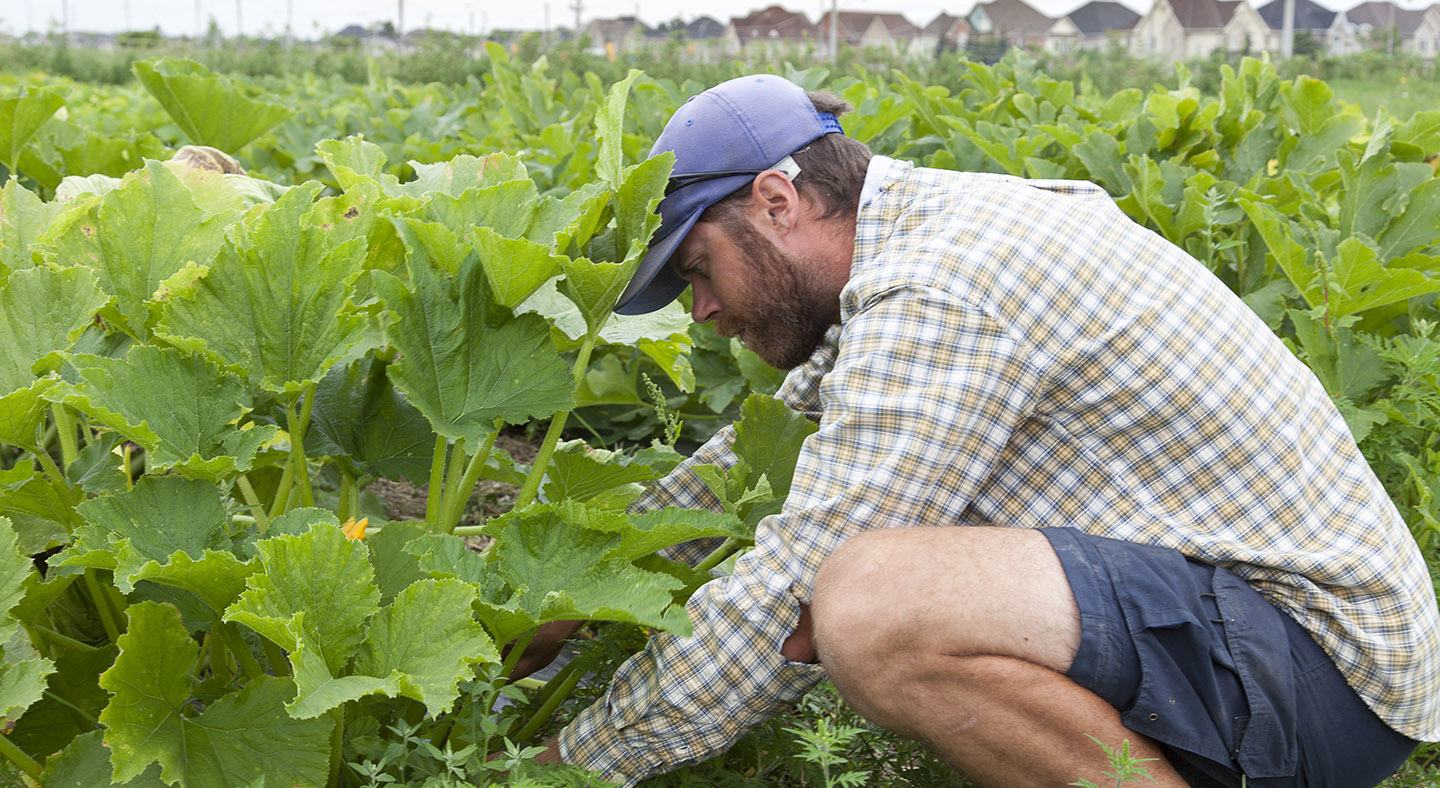
Urban farming has taken the world by storm, transforming concrete jungles into green oasis and inspiring a new wave of sustainable living. As city dwellers increasingly seek ways to reconnect with nature, urban farming has emerged as a revolutionary solution to food insecurity, environmental degradation, and urban blight. From rooftop gardens to vertical farms, the concept of growing food in urban settings has gained immense popularity and continues to evolve with innovative techniques and technologies.
In this article, we will delve into the fascinating world of urban farming and its impact on our cities and communities. We will explore some intriguing facts, uncover the benefits of urban agriculture, and highlight successful initiatives that are reshaping our urban landscapes. Whether you’re a seasoned urban farming enthusiast or simply curious about this growing movement, prepare to be amazed by the incredible possibilities that urban farming holds.
Key Takeaways:
- Urban Farming Unite brings communities together through agriculture, reducing food miles, enhancing food security, and promoting healthy living while creating beautiful green spaces in cities.
- Urban Farming Unite stimulates local economies, fosters social connections, promotes sustainable resource use, and inspires innovation in sustainable agriculture, benefiting individuals, communities, and the environment.
Urban Farming Unite brings communities together through agriculture.
Urban Farming Unite is a movement that aims to promote sustainable agriculture and food production in urban areas. It brings community members together to cultivate and harvest fresh fruits, vegetables, and herbs in shared spaces such as rooftops, vacant lots, and community gardens. By engaging in urban farming, communities can improve access to nutritious food, foster environmental sustainability, and enhance social cohesion.
Urban farming reduces food miles and carbon footprint.
With Urban Farming Unite, the distance between food production and consumption decreases significantly. By growing food within cities, urban farmers drastically reduce the number of food miles, which refers to the distance food travels from the farm to the consumer. This reduction in transportation decreases carbon emissions, leading to a more environmentally friendly and sustainable approach to food production.
Urban farming contributes to food security.
By cultivating food in urban areas, Urban Farming Unite plays a crucial role in enhancing local food security. Urban farmers can grow a wide variety of crops throughout the year, ensuring a continuous supply of fresh produce. This helps to reduce reliance on external food sources and provides communities with a sustainable and resilient food system.
Urban farming improves community health.
Urban Farming Unite not only provides access to fresh, nutritious food but also encourages physical activity and outdoor engagement. By actively participating in urban farming activities, community members can benefit from exercise, stress reduction, and improved mental well-being. Additionally, the consumption of locally grown produce has been linked to better health outcomes and a reduced risk of chronic diseases.
Urban farming enhances urban aesthetics.
Urban Farming Unite adds green spaces and vibrant vegetation to urban environments, improving the overall aesthetics of cities. Rooftop gardens, vertical farms, and community gardens not only provide food but also create visually pleasing landscapes, contribute to biodiversity, and mitigate urban heat island effects. These green spaces can foster a sense of pride and ownership within the community, transforming sterile concrete jungles into lush and inviting urban oases.
Urban farming promotes education and skill-building.
Urban Farming Unite offers valuable opportunities for education, as it provides a platform for individuals to learn about sustainable agricultural practices, urban ecology, and food systems. Community members, particularly children and youth, can develop skills in gardening, composting, and plant care. Urban farms also serve as outdoor classrooms, where workshops and educational programs can be conducted to promote environmental stewardship and agricultural innovation.
Urban farming stimulates local economies.
Urban Farming Unite has the potential to generate economic opportunities within communities. By cultivating and selling produce locally, urban farmers can create income streams and support local businesses. Farmers markets, community-supported agriculture (CSA) programs, and farm-to-table initiatives not only provide access to fresh food but also stimulate local economies, create jobs, and foster entrepreneurship.
Urban farming fosters community engagement and social connections.
Urban Farming Unite encourages individuals from diverse backgrounds to come together and work towards a common goal. By participating in urban farming activities, community members can build relationships, exchange knowledge, and foster a sense of belonging. The shared experience of growing and harvesting food creates opportunities for social interaction, community celebrations, and the establishment of a strong support network.
Urban farming promotes sustainable use of resources.
With Urban Farming Unite, the efficient use of resources is a priority. Through the implementation of innovative techniques like vertical farming, hydroponics, and aquaponics, urban farmers can maximize crop yields using minimal space, water, and energy. Additionally, urban farmers often practice composting and recycling to minimize waste and enhance soil health, contributing to a circular and sustainable approach to agriculture.
Urban farming encourages biodiversity and urban wildlife.
Urban Farming Unite supports the restoration of biodiversity within urban environments. By creating green spaces and diverse habitats, urban farms attract beneficial insects, birds, and wildlife. This not only enhances the overall ecological balance but also helps with natural pest control, thus reducing the need for harmful pesticides. Urban farming can play a vital role in conserving and promoting urban biodiversity.
Urban farming inspires innovation and sustainable technology.
Urban Farming Unite serves as a hub for experimentation and innovation in sustainable agriculture. Vertical farming systems, rooftop greenhouses, and aquaponics setups are just a few examples of the cutting-edge technologies utilized in urban farms. These innovations not only maximize productivity but also minimize resource consumption, paving the way for a more sustainable and resilient future of food production.
Overall, Urban Farming Unite is a dynamic movement that harnesses the power of agriculture to transform urban landscapes, foster community connections, improve food security, and promote a sustainable future. With its numerous benefits for individuals, communities, and the environment, it is no wonder that the 11 Fascinating Facts About Urban Farming Unite continue to captivate people worldwide.
Conclusion
In conclusion, Urban Farming Unite is not just a trend; it’s a movement that is transforming the way we think about agriculture and sustainability in urban environments. From rooftop gardens to hydroponic systems, urban farming is proving to be a viable and innovative solution to food security, environmental preservation, and community engagement.By utilizing unused spaces and applying innovative farming techniques, urban farming is bringing fresh, locally-grown produce to urban dwellers while reducing the carbon footprint associated with food transportation. Moreover, it is also creating job opportunities, promoting educational initiatives, and fostering a sense of community among city residents.As we continue to face challenges related to food production, land scarcity, and climate change, urban farming is poised to play a crucial role in addressing these issues. By supporting Urban Farming Unite and similar initiatives, we can contribute to a more sustainable and resilient future for our cities and the planet as a whole.
FAQs
1. What is urban farming?
Urban farming is the practice of cultivating and growing plants or raising animals in urban areas, typically on rooftops, balconies, or community gardens. It aims to utilize unused spaces for agricultural purposes, promoting local food production, and addressing food security concerns.
2. Why is urban farming important?
Urban farming is important for several reasons. It helps reduce the carbon footprint associated with food transportation, promotes access to fresh and nutritious produce in urban areas, creates job opportunities, and fosters community engagement and education about sustainable agriculture.
3. What types of crops can be grown in urban farming?
A variety of crops can be grown in urban farming, depending on the available space and climate conditions. Common crops include leafy greens, herbs, tomatoes, peppers, and strawberries. Some urban farms also specialize in growing microgreens or cultivating mushrooms.
4. How does urban farming benefit the environment?
Urban farming benefits the environment in several ways. It helps reduce food waste by utilizing unused spaces for cultivation. It also reduces the need for long-distance transportation of food, which contributes to lower carbon emissions. Additionally, urban farming can improve air quality and contribute to urban heat island mitigation.
5. Can anyone participate in urban farming?
Yes, anyone can participate in urban farming. Many cities have community gardens or allotment schemes that allow individuals or groups to rent a plot of land for cultivation. Additionally, rooftop gardens and indoor hydroponic systems offer opportunities for urban residents to engage in small-scale farming, even without access to land.
6. Is urban farming economically viable?
Urban farming has the potential to be economically viable, depending on various factors such as market demand, production scale, and cost-effective cultivation methods. While some urban farmers generate income by selling their produce locally, others focus on community engagement and educational initiatives rather than profit.
7. Are there any challenges to urban farming?
Urban farming does face certain challenges. These include limited space for cultivation, securing access to land, navigating zoning regulations, and managing pests and diseases in urban environments. However, with proper planning, innovative techniques, and community support, these challenges can be overcome.
Was this page helpful?
Our commitment to delivering trustworthy and engaging content is at the heart of what we do. Each fact on our site is contributed by real users like you, bringing a wealth of diverse insights and information. To ensure the highest standards of accuracy and reliability, our dedicated editors meticulously review each submission. This process guarantees that the facts we share are not only fascinating but also credible. Trust in our commitment to quality and authenticity as you explore and learn with us.


